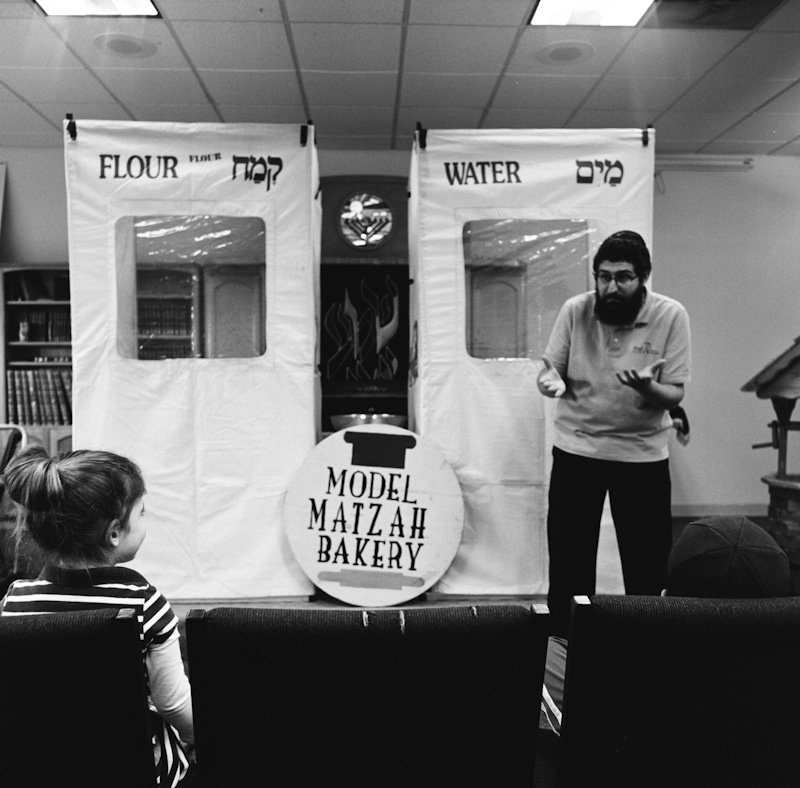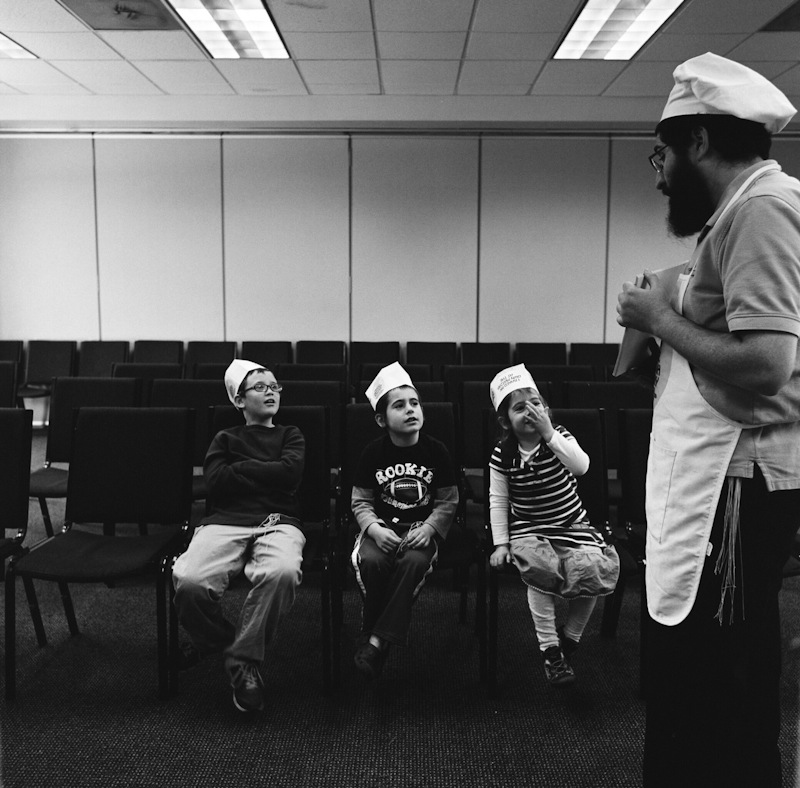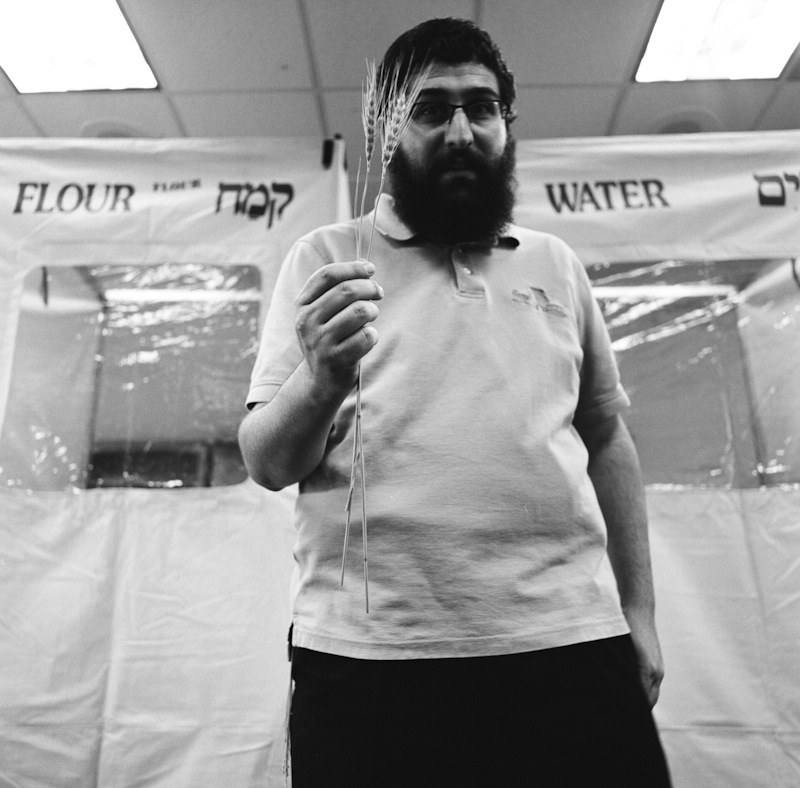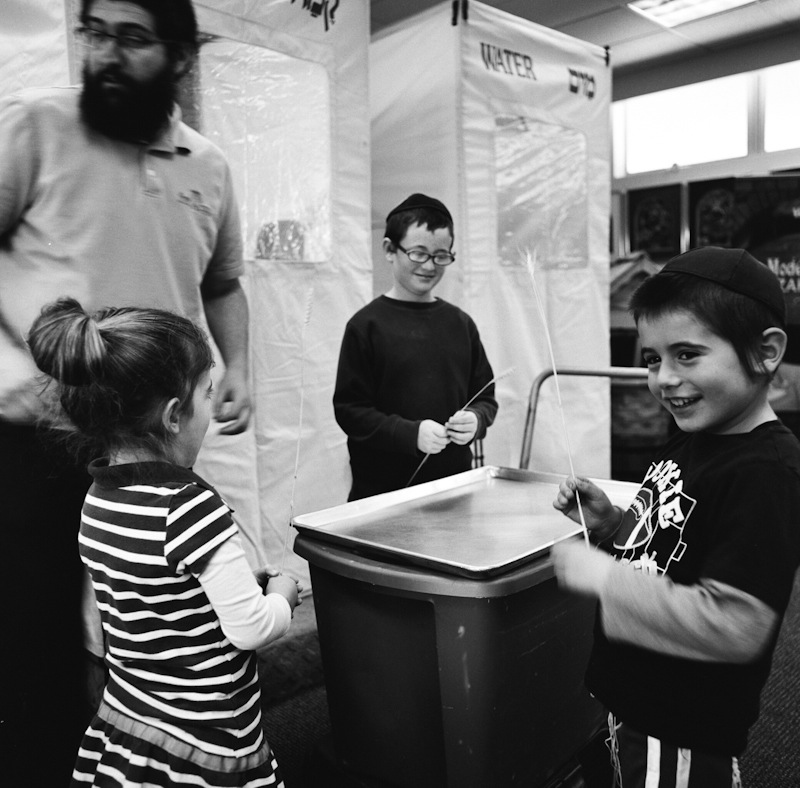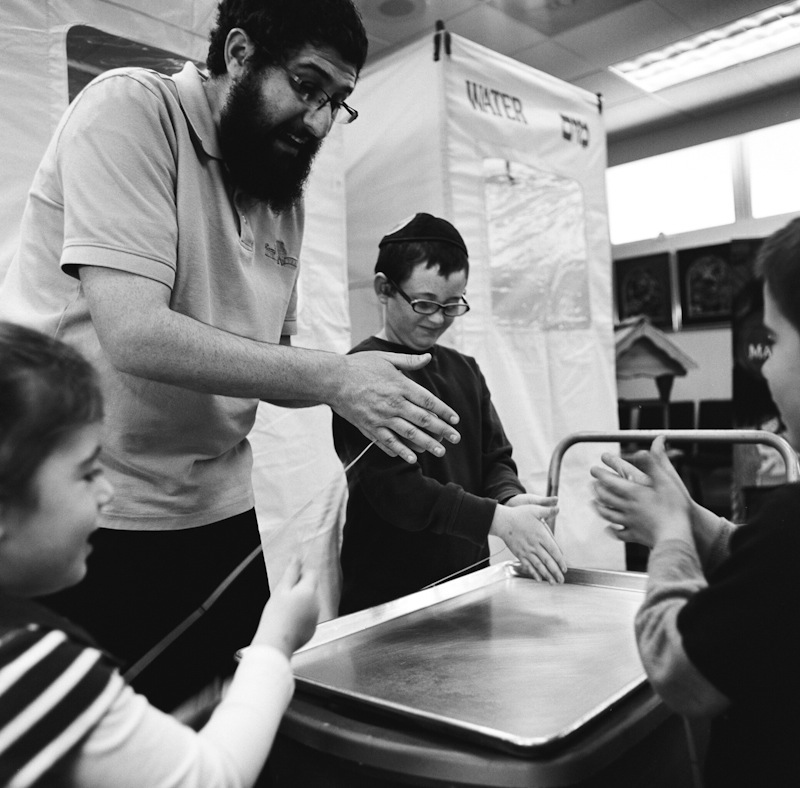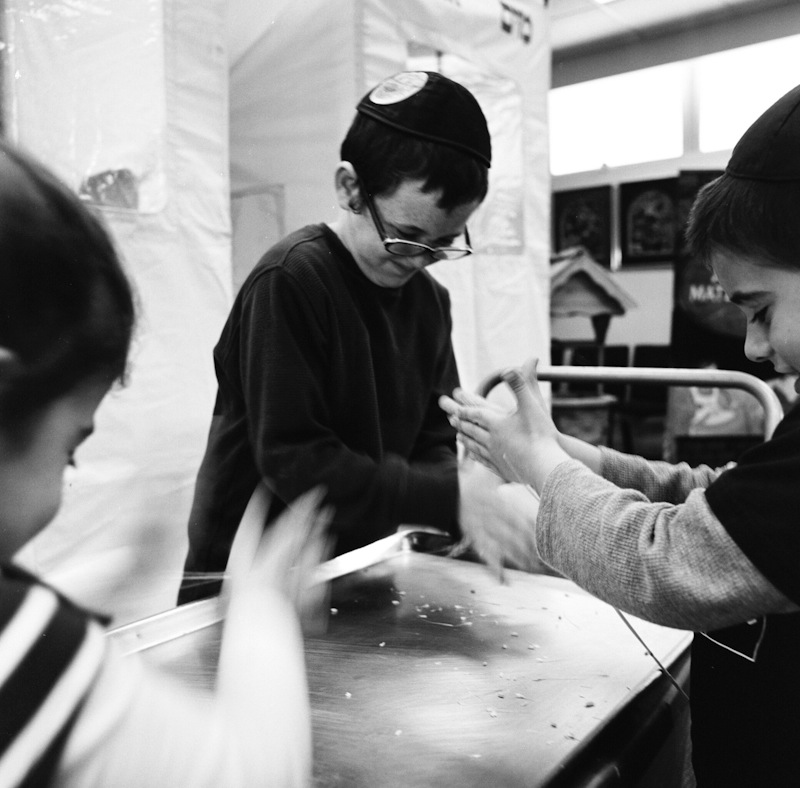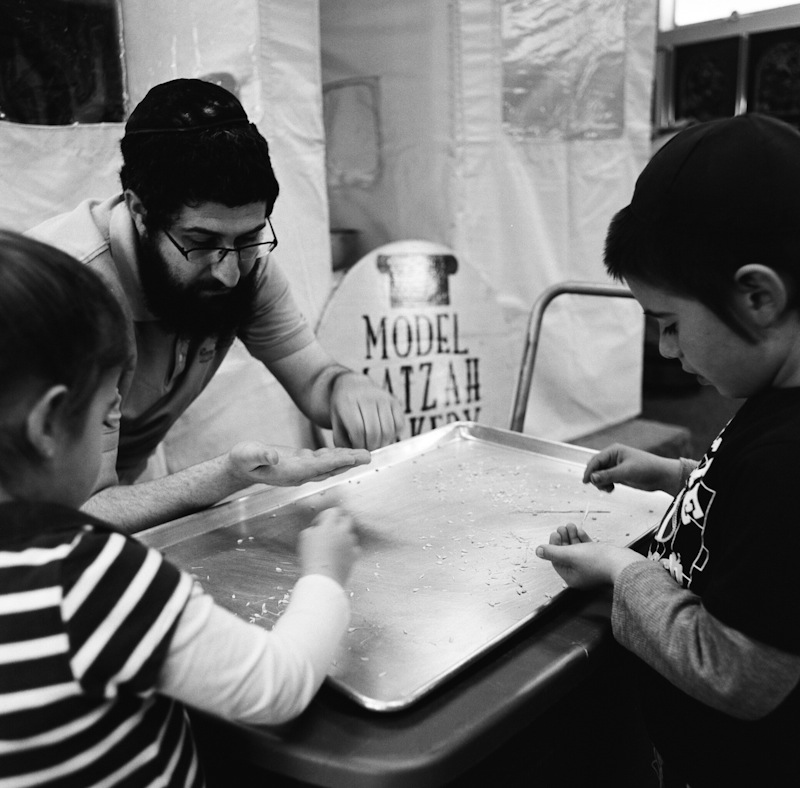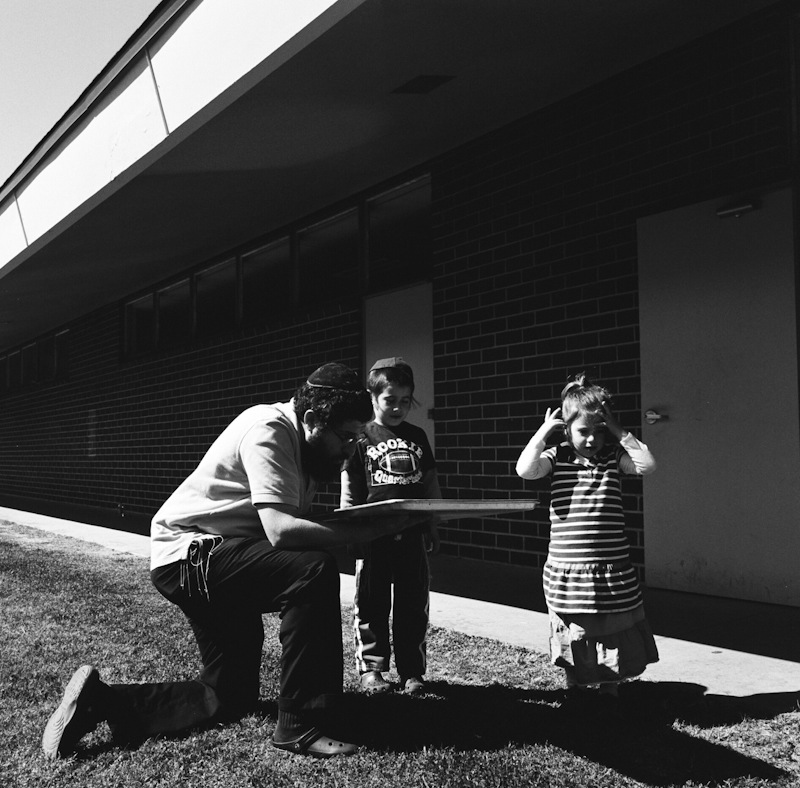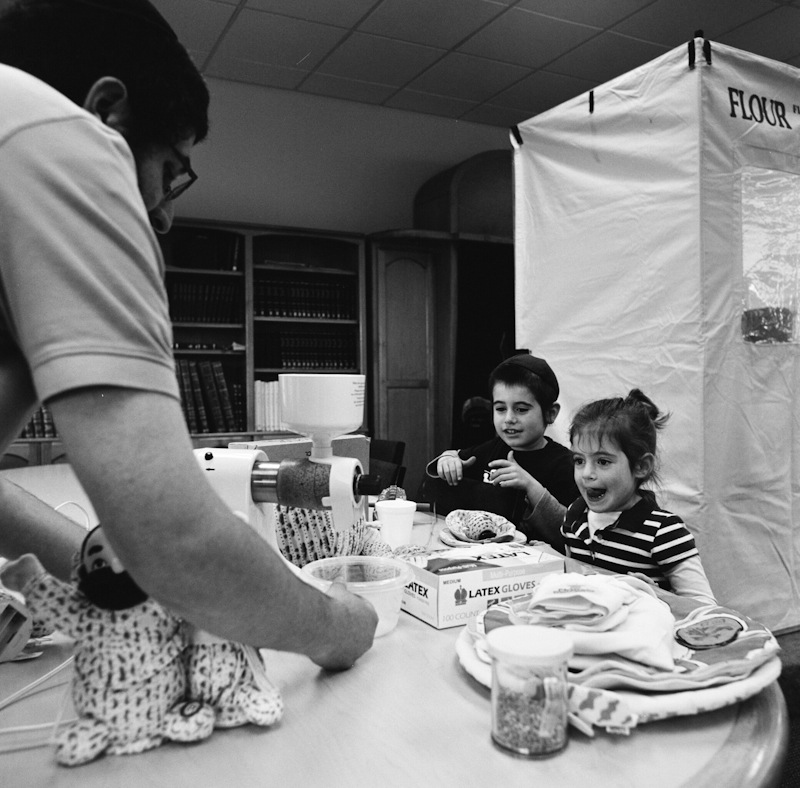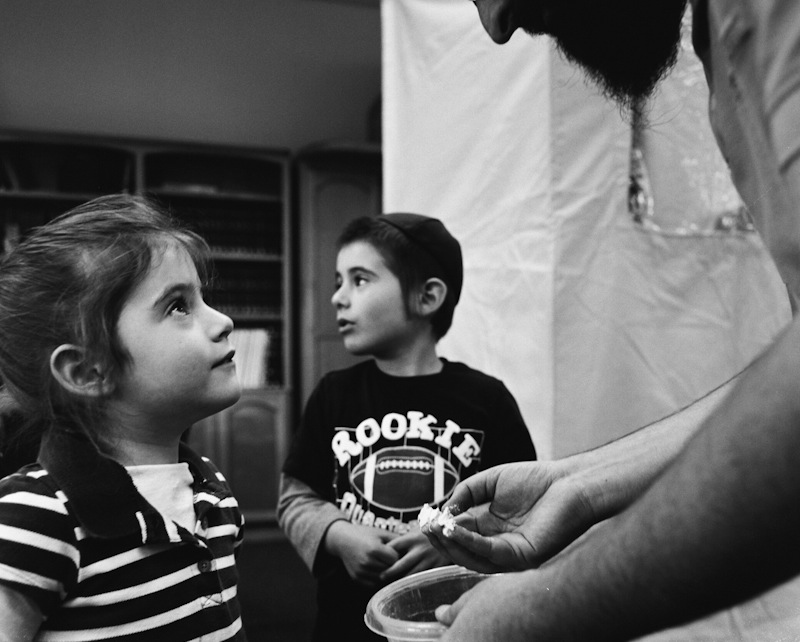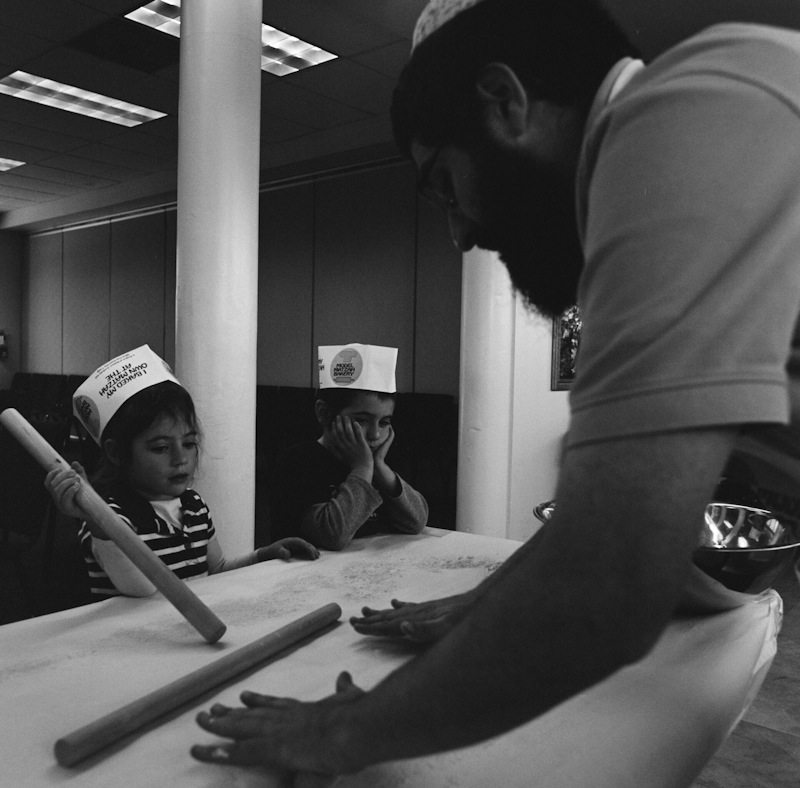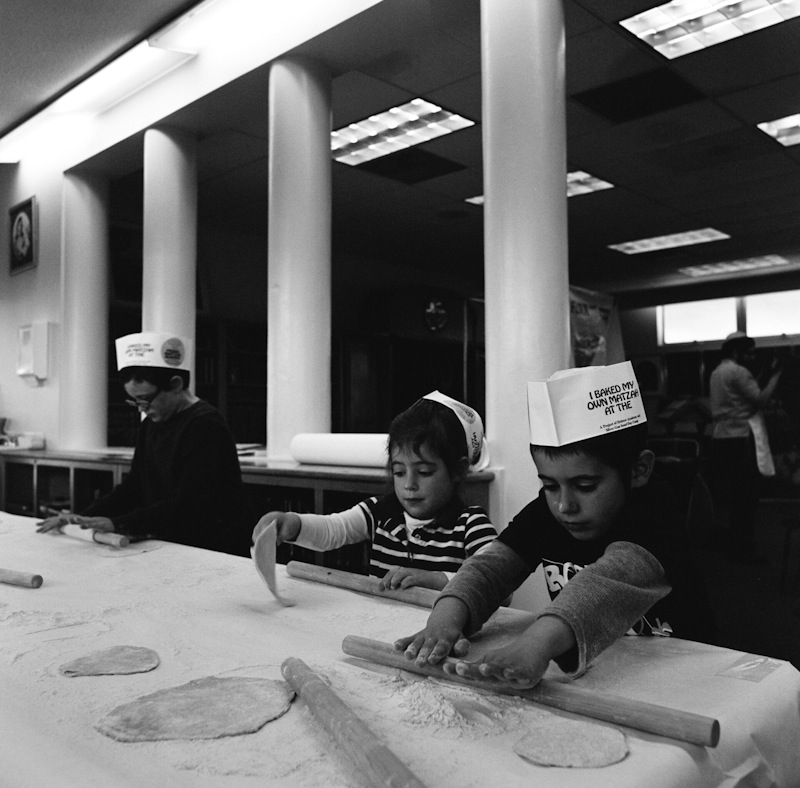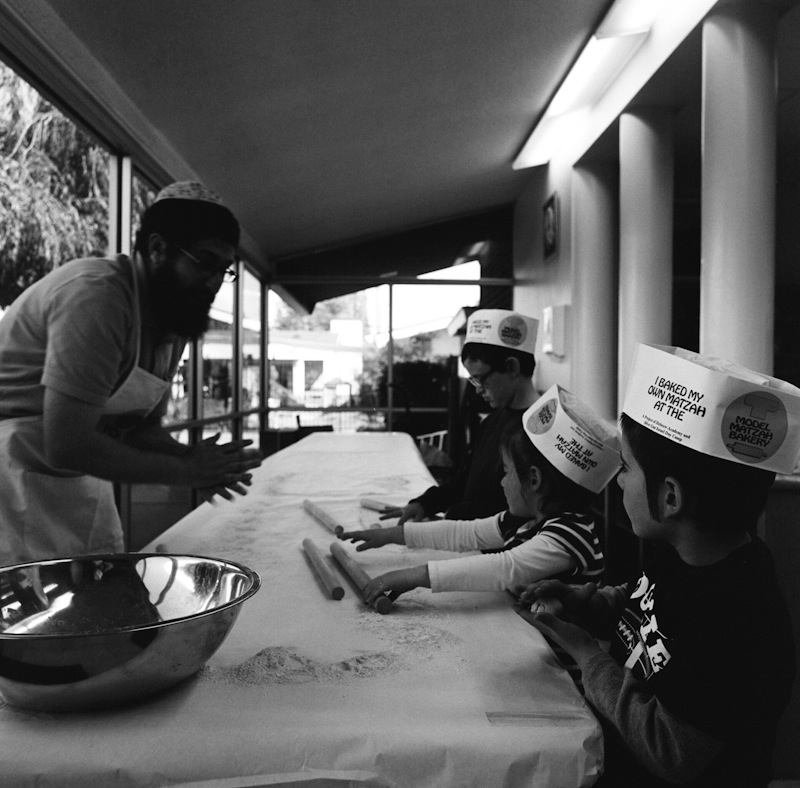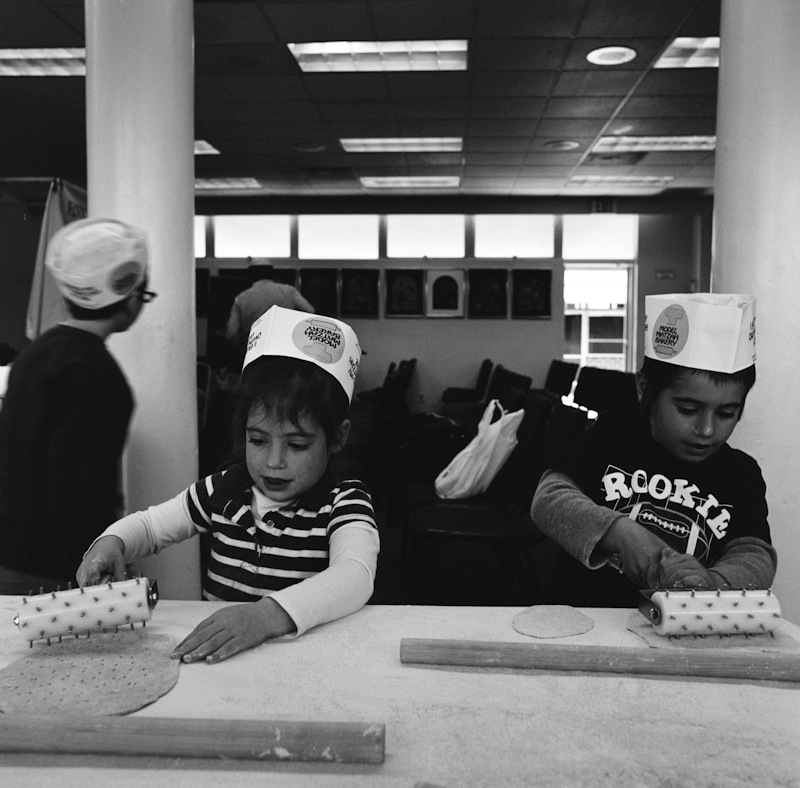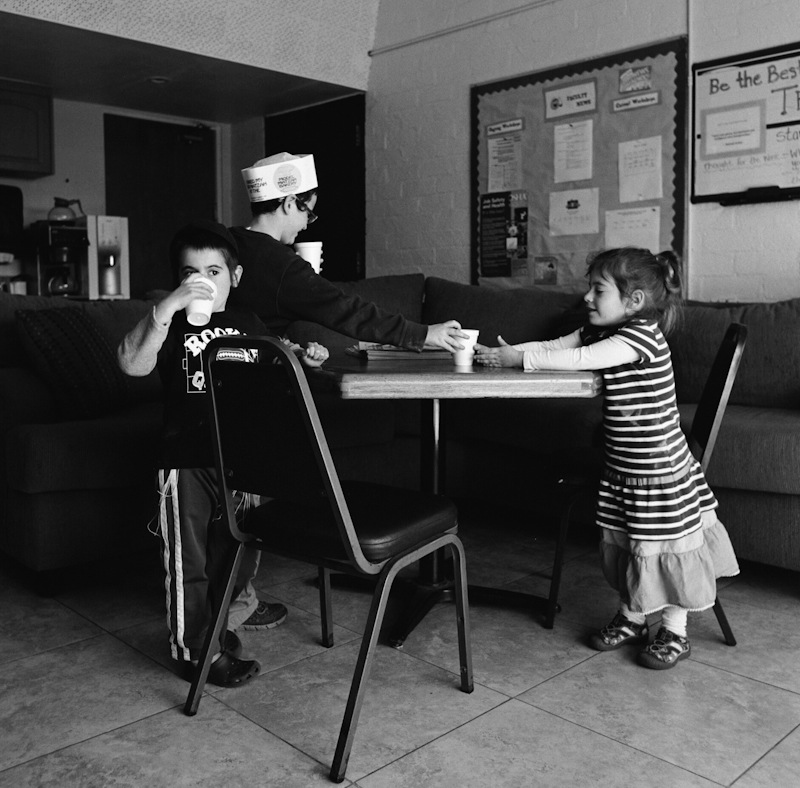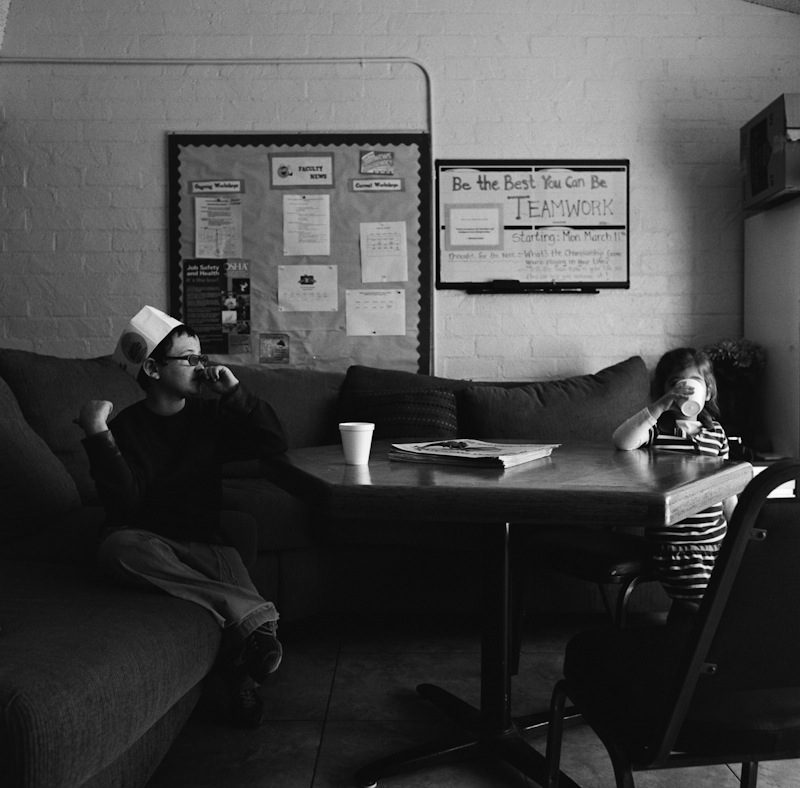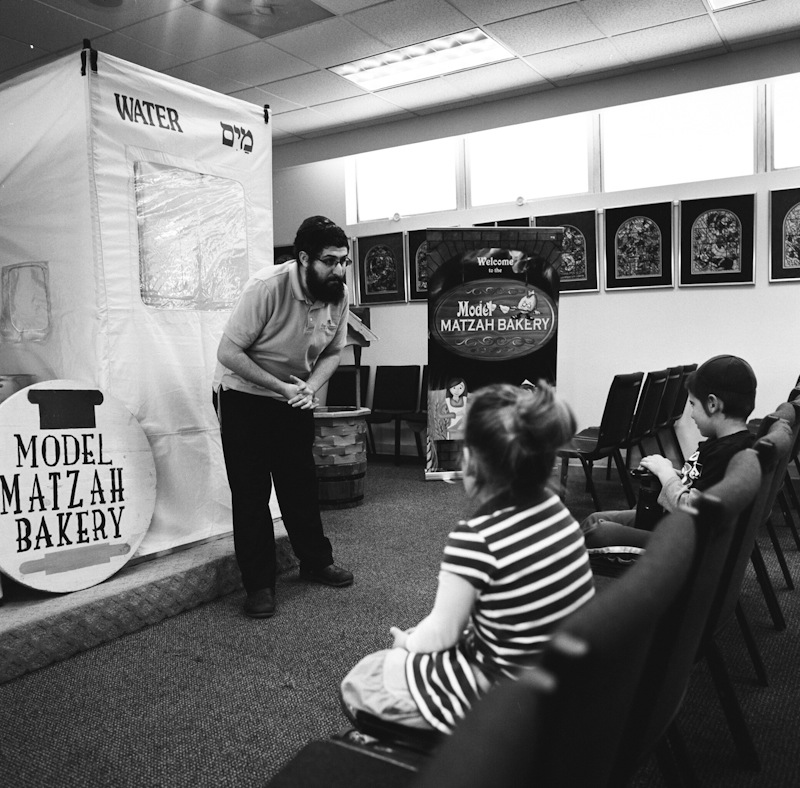 Passover just passed. I tried to get it to stay, I really did. We even conveniently forgot to put blood on our doorpost this year so maybe it would stick around for a bit. It didn't.
Passover just passed. I tried to get it to stay, I really did. We even conveniently forgot to put blood on our doorpost this year so maybe it would stick around for a bit. It didn't.
(For the record, we never put blood on our doorposts, and neither does anyone else.)
The story of the exodus from Egypt is fairly well known (though the details are most often a bit misconstrued): Hebrews go down to Egypt; have many, may kids; Egyptians freak out; Enslave the Hebrews; Moses tells Pharaoh to let the Jews go; Ten plagues; yadadada.
A lesser known aspect of Passover is the fact that only a small portion of the Hebrews left Egypt. Eighty percent didn't want to leave Egypt, and were killed during the plague of darkness.
Which begs the question: HUH?!
Why would anyone want to stay as slaves in a land where you were hated.
In my community here in Long Beach, on the seventh day of Passover we have a little gathering were a bunch of people go up to the podium to share something interesting they learned about Passover.
In addition to learning that Manschewitz's biggest customer is McDonald, I also heard a wonderful explanation of the above question.
Chassidus explains that leaving Egypt isn't something that only happened way back when, but it's a constant process. The Hebrew word for Egypt is "Mitzrayim" which can also be read as "Meitzarim" which mean borders, or boundaries. Leaving Egypt means going beyond ourselves, our habits, addictions, personalities. It begs us, and allows us, to break out of any shackles, be they physical, mental, psychological, emotional, physiological, or spiritual.
There's a saying, something to the like of "You can take a nation out of Egypt, but you can't take Egypt out of a nation". Being a slave is not just a physical bondage, it's a mentality, and when G-d took us out he allowed us to break free from the slave mentality, and he allowed us to be free, to be truly free.
Yet paradoxically, freedom is hard, and takes tremendous self-courage and self-sacrifice. It's easier to remain as one is, with all his habits, vices, and reliances. Yes, I have to work from 14 hours a day making pyramids (I have no clue if the Hebrews made them or not), tombs, and storage cities. I only get some moldy bread and a bit of beer, and I have to sacrifice half my kids. But look on the bright side, I know where my food and drink are coming from, and I get to keep half my family… Is it really so bad? How do you know what will happen if you break free? Who will take care of you? What will you do with all your spare time? Won't you miss your addictions and obsessions? Aren't you scared?
The truth is I'm terrified. I'm scared of what I know I can accomplish if I just leave Egypt. But I'm also excited. Excited to go out there and change things. To dare not just to dream, but to act on those dreams. Even at the expense of lesser dreams.
I've been reading an amazing book titled The Power of Starting Something Stupid written by the inspiring Richie and Natalie Norton. It speaks about chasing your "stupid" dreams and achieving meaningful success. One of the first and most important steps mentioned is humility. Pride in who we are, what we've become, what others think of us, holds us back from changing and going after the life we want.
Humility can come from without and from within, though it's much more sustainable if it's from within. When the Jews left Egypt there was such a huge revelation of G-d ("not through an angle, nor through a Seraf, or a messenger, rather I myself") that any pride was left behind. For who can hold himself great in the presence of absolute truth?
We eat Matzah to commemorate the Jews leaving in such a haste that their bread didn't have a chance to rise. In the (paraphrased) words of the Haggadah (the text we read at the Seder the first two nights of Passover) "This here Matzah we eat for when the Jews Jews left Egypt the bread did not have time to rise until the king of kings of kings revealed himself and redeemed them".
The rising of bread symbolizes pride, which is sometimes good and sometimes bad. But when making such a huge leap from bondage (all types) we need absolute humility to leave all our baggage behind. The Matzah has no pride, no taste. Back then, we were so sunk in the ways of Egypt and slavery that we couldn't muster up the humility all by ourselves, so G-d helped us out. But nowadays, once the Egypt was taken out of us, we must chase away our pride on our own. And the physical embodiment of that is making and eating Matzah.
So I'll raise a toast (currently Lagunitas Little Sumpin' Ale, I just keep going back to it) to the courage to be humble and the courage to be free.
***
There's a Rabbi here in Long Beach by the name of Sender Engel who goes around Long Beach and Orange County before each major Holiday with his Model Mitzvah Series. Before Passover he travels to different Hebrew Schools, Synagogues, Libraries with his Model Matzah Factory. He tells the story of Passover (with great props and all), and goes through the whole process of making Matzah. From the planting and growing of the wheat, to the threshing, winnowing, sorting, and grinding. Then the kids get to (quickly) mix the flour and water well, roll and flatten out individual Matzos, make holes, and pop them in the oven all within 18 minutes.
There was a last minute Model Matzah Bakery set up at the school, there was an email that was supposed to go out from a popular organization here, but that never happened. So it was just me, Zevi, Chanalah, and one of the Engel boys. I though he would just call it of, but he went throug the entire shpiel, (awesomely corny) jokes, history and all. I wish I had photos of the kids mixing the dough, and actually baking and eating the Matzah, but I'm a dad first, photographer second.
To be honest the Matzah wasn't too great tasting :), but that's not the point. And a Pizza oven isn't really the best (or the most Kosher) place to bake Matzas.
For a great (hilarious) video on the Matza baking process, check out this video. It's worth it.
